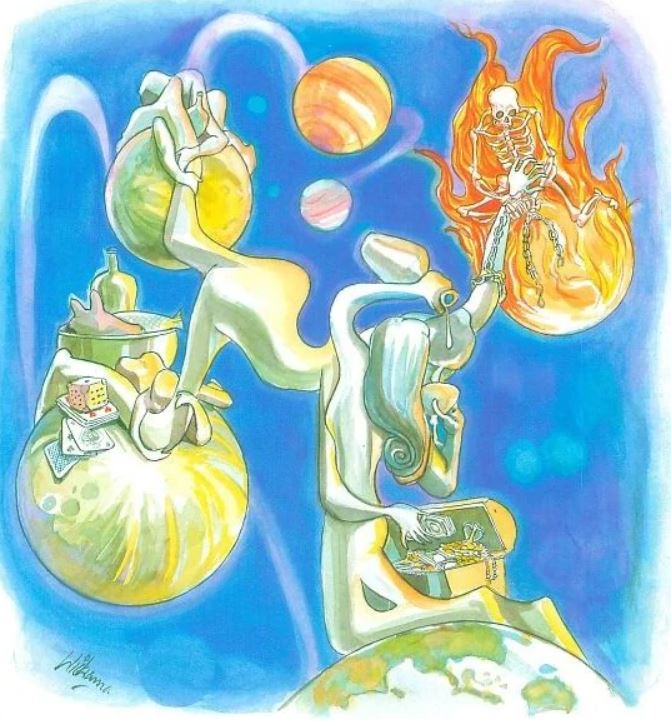The Story of a Young Bhikkhu
Verse 167: Do not follow ignoble ways, do not live in negligence, do not embrace wrong views, do not be the one to prolong samsara (lit., the world).
The Story of a Young Bhikkhu
While residing at the Jetavana monastery, the Buddha uttered Verse (167) of this book, with reference to a young bhikkhu.
Once, a young bhikkhu accompanied an older bhikkhu to the house of Visakha. After taking rice gruel, the elder bhikkhu left for another place, leaving the young bhikkhu behind at the house of Visakha. The granddaughter of Visakha was filtering some water for the young bhikkhu, and when she saw her own reflection in the big water pot she smiled. Seeing her thus smiling, the young bhikkhu looked at her and he also smiled. When she saw the young bhikkhu looking at her and smiling at her, she lost her temper, and cried out angrily, “You, a shaven head! Why are you smiling at me ?” The young bhikkhu reported, “You are a shaven head yourself; your mother and your father are also shaven heads!” Thus, they quarrelled, and the young girl went weeping to her grandmother. Visakha came and said to the young bhikkhu, “Please do not get angry with my grand daughter. But, a bhikkhu does have his hair shaved, his finger nails and toe nails cut, and putting on a robe which is made up of cut pieces, he goes on alms-round with a bowl which is rimless. What this young girl said was, in a way, quite right, is it not?” The young bhikkhu replied. “It is true but why should she abuse me on that account ?” At this point, the elder bhikkhu returned; but both Visakha and the old bhikkhu failed to appease the young bhikkhu and the young girl.
Soon after this, the Buddha arrived and learned about the quarrel. The Buddha knew that time was ripe for the young bhikkhu to attain Sotapatti Fruition. Then, in order to make the young bhikkhu more responsive to his words, he seemingly sided with him and said to Visakha, “Visakha, what reason is there for your grand daughter to address my son as a shaven head just because he has his head shaven? After all, he had his head shaven to enter my Order, didn’t he?” Continue reading








